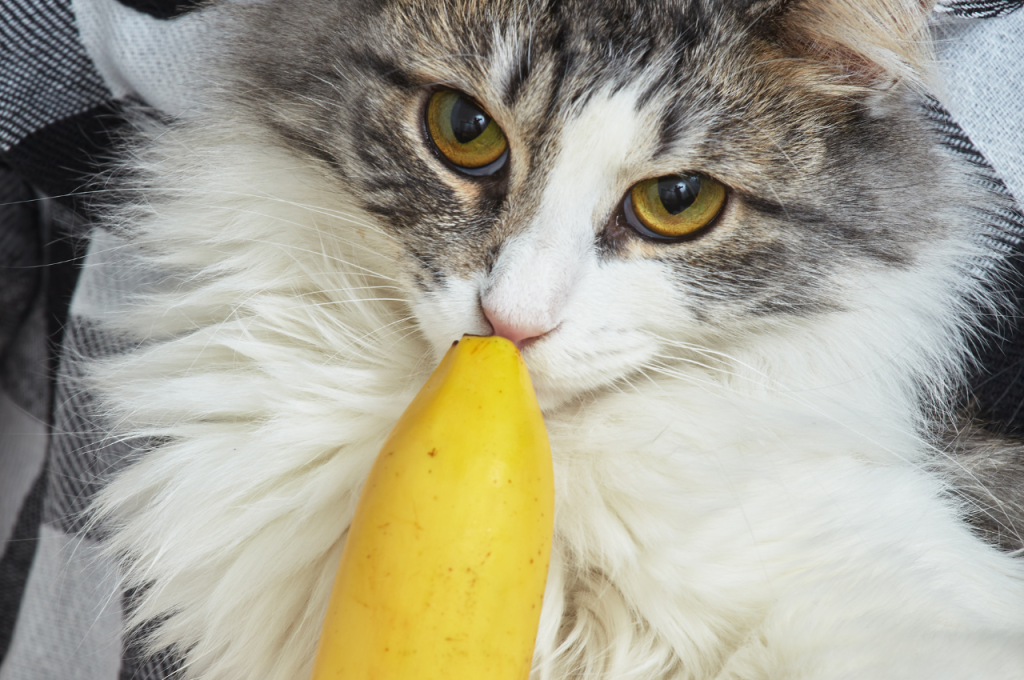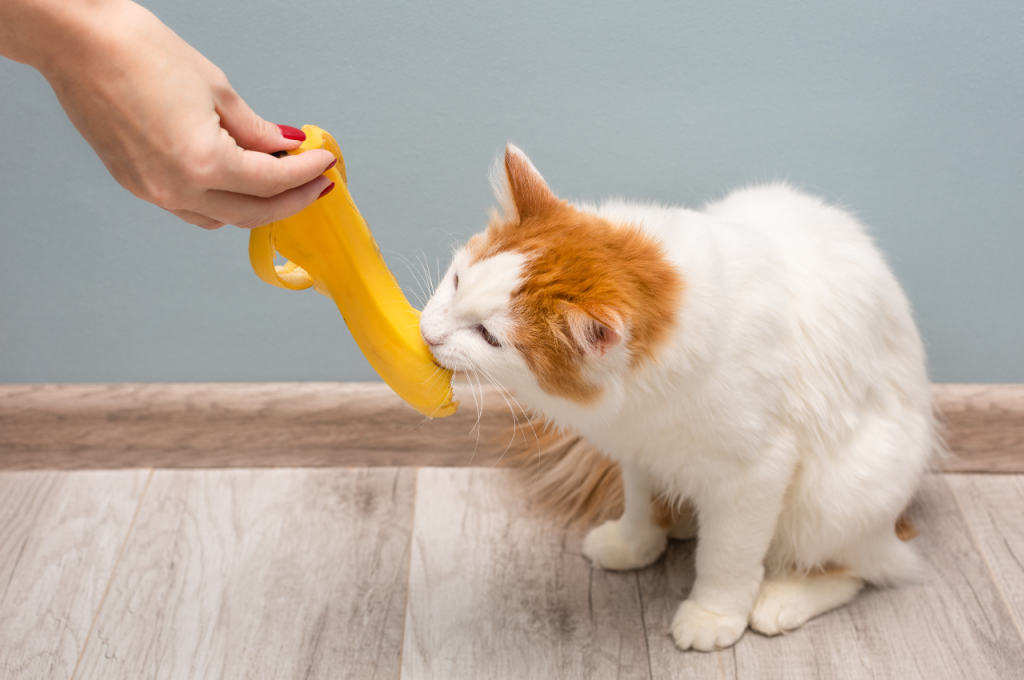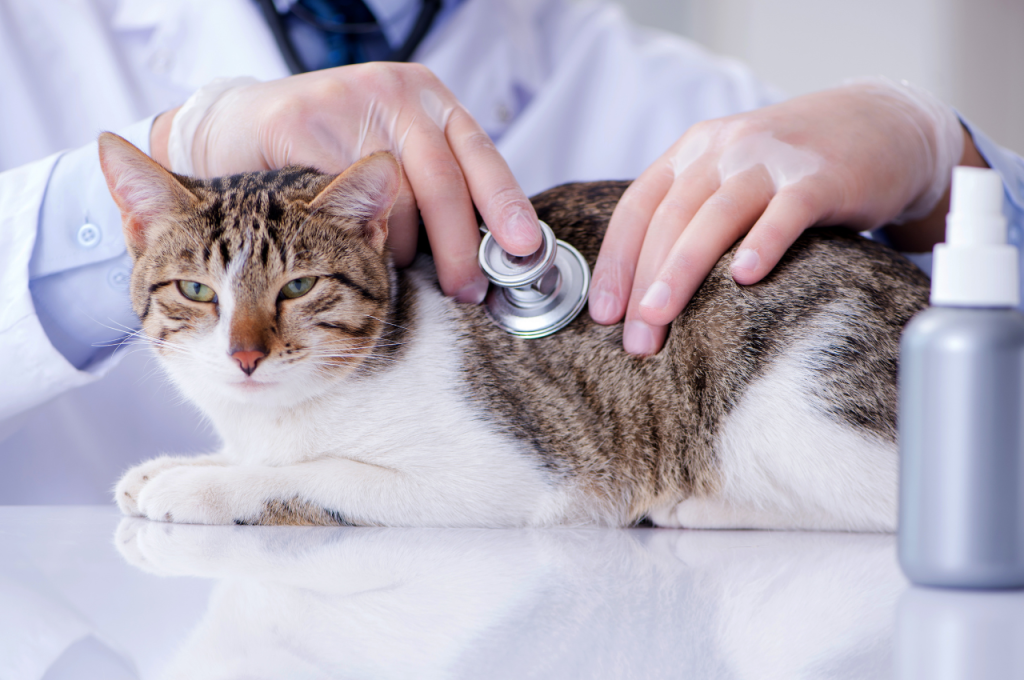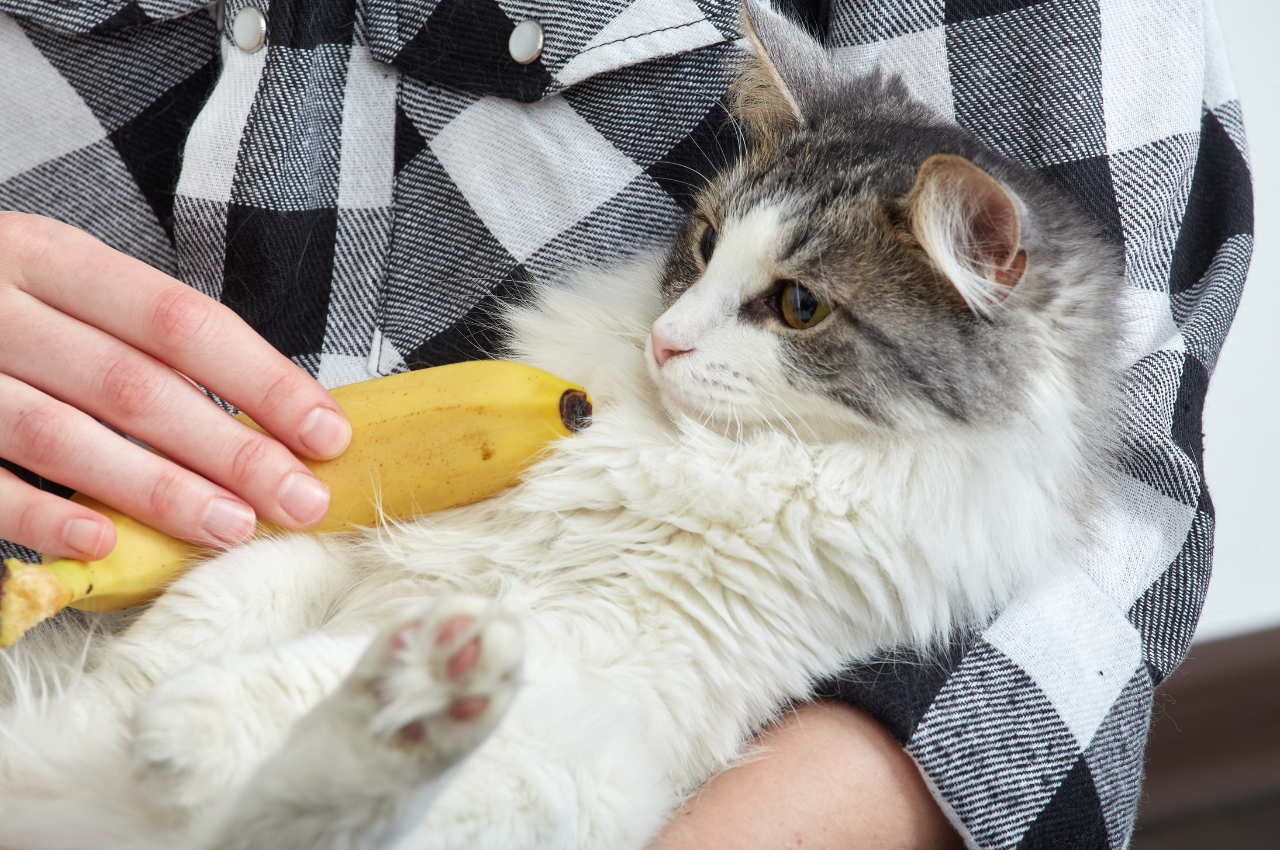Yes, cats can eat bananas in moderation, but it is not an essential part of their diet. Bananas are safe for cats to consume as an occasional treat, but they should not be a regular part of their meals.
Bananas are a good source of vitamins and minerals, such as potassium and vitamin C, which can be beneficial for cats in small amounts. However, they are also high in sugar and can cause digestive issues if consumed in large quantities.
It is important to remember that cats are obligate carnivores, and their diet should primarily consist of meat-based foods. So while it is okay to share a small piece of banana with your cat on occasion, it should not be a significant part of their diet. Always consult with your veterinarian before introducing any new food to your cat’s diet.
Introduction to Feline Diet
When it comes to feeding our feline friends, it’s essential to understand their nutritional needs. A proper diet can help prevent health issues and keep them happy and active. As responsible pet owners, we should be aware of what our cats can and cannot eat. In this post, we’ll be discussing one of the most common questions that cat owners ask: Can cats eat bananas?

Cats’ Nutritional Needs
Cats are obligate carnivores, which means they require a diet rich in animal protein. Unlike humans and dogs, cats cannot produce some essential nutrients on their own, such as taurine and arachidonic acid. They need to get these nutrients from their food. A balanced feline diet should consist of high-quality animal protein, fat, and a small amount of carbohydrates.
Common Human Foods In Cat Diet
While cats require a diet high in animal protein, they can eat some human foods in moderation. However, it’s crucial to know what foods are safe for them and in what quantity. Some human foods that are safe for cats include cooked meat, fish, eggs, and small amounts of cheese. On the other hand, some human foods that are dangerous for cats include chocolate, onions, garlic, and grapes.
If you’re considering adding some human foods to your cat’s diet, it’s best to consult with your veterinarian first. Your vet can advise you on what foods are safe for your feline friend and in what quantity.
In conclusion, a proper diet is crucial for your cat’s health and well-being. While cats can eat bananas, they are not a necessary part of their diet. It’s always best to stick to a balanced feline diet that meets their nutritional needs.
Debunking Cat Food Myths
Bananas are safe for cats in moderation, but they should not be a regular part of their diet. While they may enjoy the occasional slice, cats are obligate carnivores and do not require fruits like bananas for nutrition. It’s best to stick to cat food specifically formulated to meet their dietary needs.
When it comes to our feline friends, there are many myths and misconceptions surrounding their diet. One common question among cat owners is whether cats can eat bananas. Let’s delve into this topic and separate fact from fiction.
Myth Vs. Fact
Myth: Cats can safely consume bananas as part of their diet.
Fact: Cats are obligate carnivores, meaning their bodies are designed to thrive on a meat-based diet. While a small amount of banana may not be toxic, it is not an essential or natural part of their diet.
Myth: Bananas provide essential nutrients for cats.
Fact: Cats have specific nutritional requirements that can be met through a balanced diet of meat-based protein, fats, and essential vitamins and minerals. Bananas do not offer any unique nutritional benefits for cats.
Myth: Cats can digest bananas easily.
Fact: Cats have a shorter digestive tract compared to humans, making it difficult for them to break down and absorb plant-based foods like bananas. Feeding bananas to cats can result in digestive upset, including diarrhea or stomach discomfort.
Risks of Misinformation
Misinformation about cat food can lead to detrimental consequences for our feline companions. Cats require a carefully balanced diet to maintain optimal health, and deviating from their natural dietary needs can result in nutritional deficiencies or other health issues.
Additionally, introducing unfamiliar foods like bananas can disrupt a cat’s digestive system, causing discomfort and potential long-term health problems. It is always advisable to consult with a veterinarian before introducing any new foods into your cat’s diet.
While cats may show curiosity towards bananas, it is best to stick to their natural diet of high-quality, meat-based cat food. Providing your cat with a well-balanced diet that meets their specific nutritional needs is the best way to ensure their overall health and well-being.
Bananas Unpeeled
Yes, cats can eat bananas, but it should be in moderation. Bananas are not toxic to cats and can be a good source of vitamins and fiber. However, it’s important to remove the peel as it can be difficult for cats to digest. Always consult your vet before introducing new foods to your cat’s diet.
Bananas Unpeeled Many cat owners may wonder if bananas are safe for their feline friends. While bananas are not toxic to cats, it is important to be mindful of how they are prepared and served. In this blog post, we will focus on the topic of feeding cats unpeeled bananas. We will explore the nutritional profile of bananas, as well as the appeal of this fruit to humans. By the end of this post, you will have a better understanding of whether or not you should give your cat bananas with the peel intact. Nutritional Profile of Bananas Bananas are known for being a good source of potassium, fiber, and vitamins B6 and C.

However, the nutritional value of bananas can vary depending on their ripeness. As bananas ripen, the starches in the fruit convert to simple sugars, making them sweeter and easier to digest. A ripe banana also contains more antioxidants than an unripe one. However, bananas that are too ripe may have lost some of their nutritional value.
Therefore, it is important to choose bananas that are at the right stage of ripeness. Appeal of Bananas to Humans Humans enjoy bananas for their sweet taste and convenience as a snack. Bananas are also a versatile ingredient in many recipes, from smoothies to baked goods. However, the appeal of bananas to humans does not necessarily translate to cats. While some cats may be attracted to the smell and taste of bananas, others may not be interested in them at all. Additionally, cats have different nutritional needs than humans, and bananas should not be relied upon as a primary source of nutrition for felines. In summary, while cats can eat bananas, it is important to be mindful of how they are prepared and served.
Feeding your cat unpeeled bananas may not be the best idea, as the peel can be difficult for cats to digest. It is also important to remember that bananas should only be given to cats in moderation and should not be relied upon as a primary source of nutrition. By keeping these considerations in mind, you can safely share a banana with your feline friend as an occasional treat.
Feline Reaction to Bananas
Cats may enjoy bananas in moderation due to their natural sweetness, but not a necessary part of their diet. Some felines may have an adverse reaction to bananas, experiencing digestive issues or allergies. Always consult with a veterinarian before introducing new foods to your cat’s diet.
Cats and Taste Preferences
Cats have unique taste preferences. They may or may not like bananas due to their individual preferences.
Cats’ Reaction to Banana Scent
Cats react differently to banana scent. Some may be curious, while others may show no interest.
Health Implications
When it comes to the health implications of feeding bananas to your feline friend, it’s essential to consider both the potential benefits and risks. While bananas can offer certain nutritional advantages, there are also important factors to bear in mind to ensure your cat’s well-being.
Benefits of Bananas for Cats
Bananas can provide several potential benefits for cats when consumed in moderation. They are a good source of potassium, which can help support healthy heart function and regulate blood pressure. Additionally, the fiber content in bananas may aid in digestion and promote gut health. Furthermore, bananas contain vitamins C and B6, which can contribute to a strong immune system and overall well-being.
Potential Health Risks
While bananas can offer nutritional benefits, it’s important to be aware of potential health risks associated with feeding them to cats. The high sugar content in bananas can pose a risk for cats, particularly those with diabetes or weight issues. Additionally, overconsumption of bananas can lead to digestive upset and stomach discomfort in cats. Moreover, the presence of chitinase in bananas could potentially lead to allergic reactions in some felines.
Safe Consumption Guidelines
When it comes to feeding bananas to your feline friend, it’s essential to establish safe consumption guidelines. While bananas are generally safe for cats, it’s crucial to exercise caution and moderation to ensure your pet’s well-being.
Portion Control
Feeding cats bananas in moderation is key. A small portion, such as a few small slices, can be suitable for most cats. However, it’s important to remember that cats are obligate carnivores, and their diet should primarily consist of animal-based protein.
Frequency of Feeding Bananas
Cats should only be given bananas occasionally as a treat. Bananas should not be a regular part of their diet. Feeding them bananas too frequently can lead to digestive issues due to the fruit’s high sugar content.
Alternative Treats for Cats
When it comes to finding alternative treats for cats, it’s important to ensure that the options are not only safe for feline consumption, but also provide nutritional value. While cats may not have the same sweet tooth as humans, they can still enjoy certain fruits in moderation. Let’s explore some alternative treats for cats, including commercial cat treats and homemade healthy options.
Commercial Cat Treats
Commercial cat treats are specifically formulated to meet the dietary needs of cats. When choosing commercial cat treats, look for options that are high in protein and free from artificial additives. Treats that are designed to promote dental health can also be beneficial for your cat’s overall well-being.
Homemade Healthy Options
For cat owners who prefer to provide homemade treats, there are several healthy options that cats can enjoy. Lean meats such as chicken or turkey can be cooked and offered as a special treat. Additionally, small amounts of certain fruits, such as bananas, can be safely given to cats as an occasional indulgence.
Veterinarian Insights
As obligate carnivores, cats do not require fruits in their diet. While bananas are not toxic to felines, they contain high levels of sugar and carbohydrates that can lead to digestive problems. Veterinarians recommend limiting or avoiding bananas in your cat’s diet.

Expert Advice on Cat Diet
When it comes to feline nutrition, it’s crucial to seek expert advice. Veterinarians are the best source of information on what constitutes a healthy diet for your cat. They can provide insights into the types of foods that are safe for cats and those that should be avoided.
When to Consult Your Vet
If you’re unsure about whether bananas can be a part of your cat’s diet, it’s best to consult your vet. Professional guidance is essential to ensure that your feline friend’s nutritional needs are being met. Any concerns about your cat’s diet should prompt a visit to the vet.
Conclusion
To sum up, cats can eat bananas in moderation as an occasional treat. Ensure to remove the peel and seeds. While bananas offer some health benefits, too much can lead to digestive issues. Always consult your vet before introducing new foods to your feline friend’s diet.
